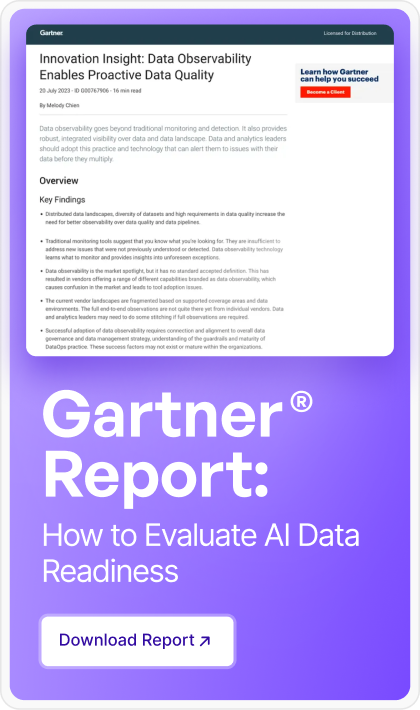Approximately 1.7 megabytes of data are created per person globally every second. Data is critical. According to Salesforce, 73% of business leaders believe that data reduces uncertainty and drives better decisions. Furthermore, spending on data management workloads will reach $ 61.7 billion by 2027.
What’s the real challenge? It’s not just drowning in data; it’s figuring out how to ride the wave and turn it into actionable insights! That’s where mastering data warehouse concepts becomes a powerful tool for transforming your business.
Your organization can transform data into a strategic asset by implementing the right data warehouse functions and best practices, driving decision-making, enhancing operations, and boosting profits.
What Is Data Warehouse and Why Does It Matter?
A data warehouse is a centralized system that stores and organizes data from multiple sources in one place for analysis and reporting. Unlike transactional databases, data warehouses are designed for complex queries that enable quick, in-depth analysis.
Your business can unlock valuable insights by integrating information from multiple sources such as sales, customers, and social media into a single source.
For example, a retail company can integrate behaviour data with supply chain information to enable dynamic inventory management. One of the critical data warehouse functions is turning disparate datasets into a cohesive system that powers smarter decisions.
Key Functions of Data Warehouse that Drive Efficiency
To thrive in today’s data-driven landscape, businesses need robust systems that can efficiently collect, store, and analyze vast amounts of information while ensuring that the data is accurate, secure, and accessible.
A well-designed data warehouse performs the following multiple functions that allow organizations to harness their data effectively:
- Data integration: Data can be integrated from various systems such as CRM, ERP, and other platforms to ensure consistency and accuracy. This is achieved through data integration techniques such as data consolidation, data federation, data transformation, and data warehousing.
- Data storage solutions: Cloud platforms such as Snowflake offer scalable storage, ensuring your business can handle growing data volumes efficiently. With these platforms, you can optimize your data storage through warehouse solutions.
- Data transformation: It is crucial to clean and transform raw data to obtain accurate insights. The right data transformation can help leverage large amounts of data.
- Advanced querying and analysis: Data warehouses enable complex analysis across extensive datasets, which is crucial for industries such as retail and finance, where real-time decisions are key to success.
- Security and governance: Modern warehouses adhere to regulations such as GDPR and CCPA, ensuring data security, encryption, and optimal access control.
- Backup and recovery: Automated backups are vital to ensure continuity, which reduces the risks of data loss from system failures or cyberattacks.
It's essential to understand the key components of a data warehouse to maximize the data warehouse benefits.
Recent Trends Boosting Data Warehouse Adoption
According to IDC, investments in shared cloud infrastructure grew by 7.2% to $18.5 billion in 2024. This trend reflects the rising preference for scalable and cost-effective data infrastructure.
AI-powered workloads such as business intelligence analytics witnessed a 15.3% increase in spending in the second half of 2023, highlighting the strategic importance of advanced analytics in data management.
Amid the ongoing wave of Generative AI, security remains a top priority for businesses. Forrester predicts that 35% of global CISOs and CIOs are focusing on deploying genAI use cases to improve employee productivity. This highlights the importance of data warehouses, as unified access to data silos is essential for prioritizing profit over exploration.
How Data Warehouse Augments Business Benefits
The right balance between cost and business benefits will help you decide the long-term vision for your company.
Investing in a data warehouse offers the following benefits:
- Centralized data management: Eliminating data silos ensures consistent, unified access to data. A holistic approach to data ensures that all departments of your business have access to the right data.
- Faster decision-making: Data warehouses allow rapid data retrieval, which enables timely decisions. A MicroStrategy study revealed that one of the top benefits, noted by 64% of companies, was enhanced efficiency and productivity.
- Improved data quality: Transforming raw data into a more usable form ensures that insights are reliable and accurate.
- Scalability: Platforms such as Amazon Redshift, Snowflake, and Google BigQuery provide flexible storage and computing that allows you to grow according to your business needs.
- Cost-efficiency: Centralized data will reduce your redundancies and help cut costs associated with maintaining multiple systems. Gartner's research suggests that poor data quality is responsible for an average of $12.9 million per year in losses. Learn how to optimize your data costs with Acceldata.
Best Practices to Maximize Your Data Warehouse Strategy
The best practices for maximizing your data warehouse strategy are those that help future-proof your system for both historical and upcoming data needs. A great way to deepen your understanding is to stay informed about the key trends in data warehouses, as highlighted by Acceldata.
- Alignment with business goals: Ensure your data warehouse supports strategic objectives such as customer retention by integrating relevant datasets. For instance, Hershey's was able to reduce the time taken to detect anomalies from weeks to less than two days.
- Choosing flexible data storage solutions: Use cloud-based solutions such as Google BigQuery to manage data efficiently as your business grows.
- Implementing strong security protocols: Ensure compliance with GDPR and CCPA by deploying encryption and access controls.
- Monitoring and optimizing continuously: Regularly assess pipeline performance to ensure that data flow remains smooth and operational inefficiencies are addressed through performance reviews and improvements. You can opt for Acceldata’s data observability platform to monitor and enhance pipeline performance proactively.
Integrating additional systems into your data warehouse solution gradually, while leveraging data observability, will help you create an efficient and robust system that maximizes your data warehouse benefits.
Optimizing Data Warehouses for Modern Businesses
Building your data warehouse is just the first step. To maximize its potential, your business needs complete visibility into data pipelines and warehouse performance. If you’re just beginning to explore data observability, it’s important to know that it offers real-time insights into data quality, platform performance, and pipeline efficiency.
Pubmatic was able to save significant costs by leveraging Acceldata's data observability platform. Gartner recommends that data and analytics leaders must automate data warehouse development to meet analytics requirements and provide enhanced business benefits.
Powering Your Data Strategy with Acceldata
A powerful data warehouse is essential in today’s competitive landscape, but ensuring optimal performance requires continuous monitoring. Acceldata’s platform provides you with the tools needed to unlock the full potential of your data, driving business growth and operational efficiency.
Get in touch with Acceldata today to explore the best-in-class platform to build a robust data strategy.
Summary
Key insights on data warehouse concepts include essential functions such as data integration, storage solutions, transformation, and advanced analytics. Modern warehouses play a crucial role in helping businesses convert disparate data into actionable insights, facilitating fast and reliable decision-making.
To achieve sustainable performance, continuous optimization is vital, and Acceldata is well-equipped to provide that support.
Acceldata’s observability platform helps you monitor and optimize data pipelines, ensuring the presence of high-quality, reliable data across warehouses.







.webp)







.webp)
.webp)


